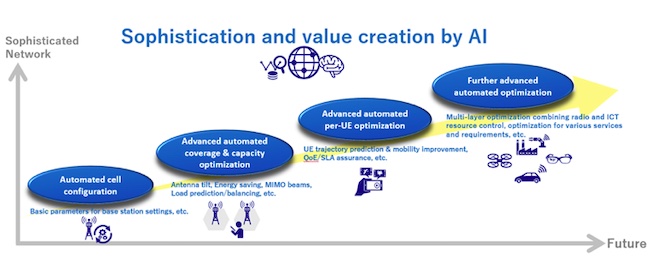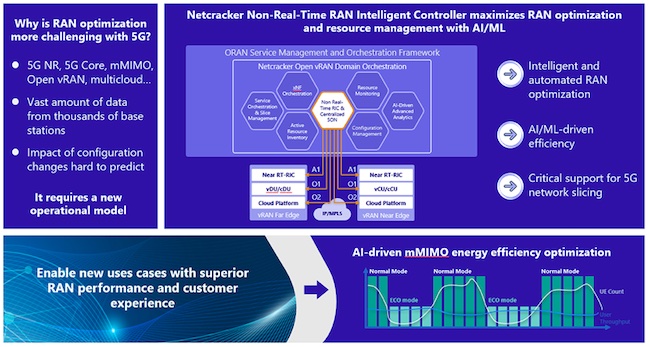NEC to Jointly Develop RIC for Advanced Operations of Open RAN With NTT DOCOMO
NEC Corporation announced the joint development of RAN Intelligent Controllers (RIC) with NTT DOCOMO, INC. in support of intelligent Radio Access Networks (RAN). The two companies are aiming to reduce RAN operational costs, improve performance, and reduce power consumption through the use of RIC. A demonstration showcasing the potential of RIC has been published new windowonline as an MWC Barcelona 2021 exhibit.
Equipment conforming to O-RAN Fronthaul Interface Specifications(1) enables interoperability with different vendors’ products as well as the deployment of an optimal and flexible network that meets the needs of various use cases and network technology requirements.
Recommended AI News: PayBito Helps Users In The Philippines To Cash In Cryptocurrency With Their Crypto Exchange
Furthermore, the introduction of RIC utilizing AI allows more sophisticated and efficient control of networks.
Both companies plan to initiate joint development of RIC mainly aimed at reducing the operating costs of RAN, such as automating base station settings. As a next step, the companies will improve the performance of RAN through measures that include reducing the power consumption of network equipment by automatically and autonomously optimizing radio resources.
In the future, the RIC control cycle will be advanced from slow control to fast control, and from the base station unit level to a user-based level of control. At the same time, optimization will be performed in conjunction with the control of different elements, such as radio resources and computing resources. Moreover, the companies aim to create new value by optimizing network characteristics, such as ultra-high-speed, large-capacity, ultra-low latency, high reliability, and multiple simultaneous connections to realize a variety of services through upgraded networks.
NEC’s subsidiary, Netcracker, provides an Open RAN Domain Orchestration solution aligned with the O-RAN Alliance Service Management and Orchestration framework, including RIC functionality developed by Netcracker. The solution is based on Netcracker’s Digital OSS (operations support system), built from its wealth of experience domestically and internationally, and brings together the orchestration, real-time OSS, and advanced analytics required to fully automate RAN domain operations, from planning and design, to activation, monitoring, and optimization. With end-to-end visualization and optimization, the solution maximizes RAN performance and improves business KPIs for service providers.
Recommended AI News: BlueSnap Powers Digital Payments For Post-Pandemic Education
Since 2018, NEC and DOCOMO have been working jointly to verify and test Open RAN technologies and promote their use. In June 2020, NTT and NEC entered into a capital and business alliance with the aim of developing and selling new internationally competitive products for 5G and beyond, including further accelerating the penetration of Open RAN specifications.
NEC and Netcracker will continue to develop RIC in collaboration with DOCOMO in order to enable intelligent functionalities for accommodating various 5G use cases. Furthermore, the companies aim to promote innovation in support of an ecosystem that solves social issues through deployment of diverse 5G Open RAN solutions throughout the world. This includes intelligent solutions utilizing and integrating the technologies and expertise related to networking and AI owned by each company.
MWC Barcelona 2021 online exhibition:
NEC is providing an online demonstration showcasing the functionalities and features of RIC. The demonstration shows how user throughput can be improved and how power consumption can be reduced by applying RIC to Massive MIMO(2), a key technological element for advanced 5G, and automatically optimizing beam configuration.
(1) Open interfaces between the base station equipment master station and radio slave stations established by the O-RAN Alliance (Open Radio Access Network Alliance)
(2) This is an advanced technology for MIMO (Multiple Input Multiple Output), which simultaneously improves the quality and stability of spatial multiplexing and radio propagation paths by taking advantage of the flexibility of a large number of independent transceivers. In 5G, it has been developed and introduced aiming at further frequency utilization and efficiency improvement by spatial multiplexing, in addition to orthogonal frequency multiplexing and time division multiplexing of 4G.
Recommended AI News: Fractal Acquires Samya.ai To Drive Next Generation Of Enterprise Revenue Growth Management



Comments are closed.